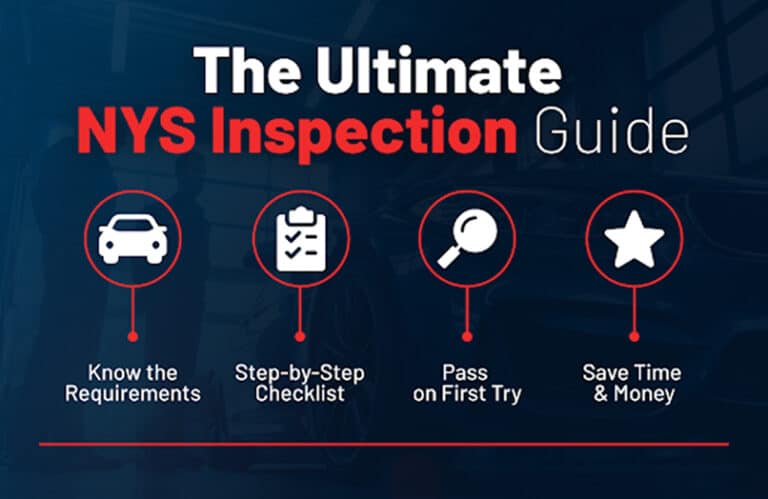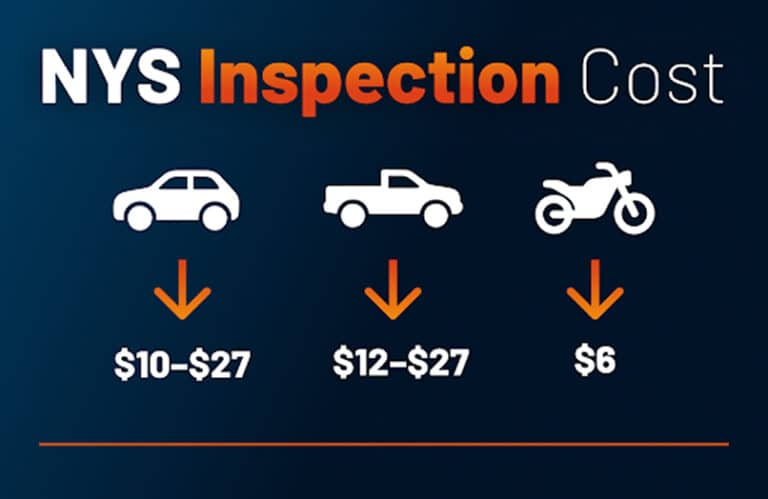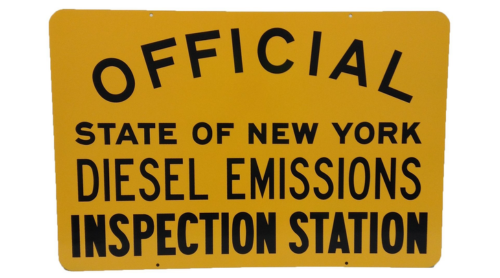The Ultimate 2025 Diesel Engine Troubleshooting Guide
This diesel engine troubleshooting guide will help you understand common challenges diesel engines are prone to facing, hopefully preparing you to handle it if you’re ever in a dicey situation.
Diesel engines are ingenious in their inner workings, and each engine is a little bit different from the next. Briefly, diesel engines utilize compression ignition caused by combustion to convert the energy in diesel fuel into rotary mechanical energy. It sounds straight forward but it’s actually the combination of several components.
What is wrong with my Diesel Engine?
To power a full vehicle, these components must work in tandem. And while diesel engines are dependable, it doesn’t come as a shock when they break down, considering all the work they do.
That brings us to a common question people often ask: “What is wrong with my diesel engine?”
This doesn’t have a simple answer, since it depends on several factors. You can do some troubleshooting which will point you in the right direction as regards your diesel engine problems.
Check out our Diesel Repair Services for more information.
TYPICAL Diesel Engine Problems
Let’s start with the most popular diesel engine concerns.
This is a huge diesel engine problem because it doesn’t stop at the engine. It can escalate to affect the cylinder heads, the pistons, the crankshaft, and the bearings. Not even the suspension system is spared.
So, what causes a diesel engine to overheat? Typically, an engine would avoid overheating by having a functional cooling system and “not working too hard”.
That said, engine overheating in a diesel engine is caused by working the engine too hard and a faulty coolant system. This may be caused by coolant leaks, clogged diesel injectors, a faulty cooling fan, and a bad thermostat.
So, give these components the once-over to figure out which is causing the problem.
When a diesel engine vehicle is left to sit in one place for long or when it operates only a few times over long periods, there’s often an issue with the oil. This is caused when air gets into the oil, creating bubbles that interfere with lubrication. Beyond that, they can also result in rust and friction in moving components because the air bubbles cause the oil to thin out.
On that note, oxidized oil results in accelerated degradation and increased oil viscosity, as well as the formation of sludge and deposits. The sludge in particular is why people think that the oil is dirty and has completed its life. It hasn’t actually, it’s just the chemistry that has been altered.
Here’s what you should do – change the oil, but ensure the new oil is one that lasts longer regardless of oxygen, heat, and stress. Make sure to run the engine regularly.
Contaminated diesel fuel is just all-around bad news. And it’s even easier for diesel fuel to experience this than gasoline, considering how much more viscous it is.
It can be contaminated by water, soot, debris, microorganisms, and glycol. These contaminants can get into fuel through damaged caps or seals. Plus, storing diesel for a long time or something as simple as bad weather conditions can cause this contamination.
Once they get into the fuel pump or injector, your vehicle is well on its way to engine failure.
A few quick ways to tell your diesel fuel is contaminated:
- Check engine light coming on
- Clogged fuel filters
- A failing fuel pump
- Partial injector failure.
Here are a few signs to keep an eye out for:
- Jerks at high speeds
- Sudden power loss
- Engine surges
- Low engine power
- Noise
- Poor starting and idling
- Smoke
- Increased fuel consumption.
Revving and revving continuously in the morning before your vehicle starts is a sign of decreased power. It could be caused by a loose throttle linkage, dirty fuel filter, clogged fuel delivery lines, or fuel injector problems.
Some of these are issues caused by contaminated diesel fuel which means that diesel engine problems are often somehow connected.
You might notice this hard starting of your diesel engine more during the cold seasons. This is because, unlike gas engines that use electricity to produce combustion, diesel engines need air compression.
During winter, fuel delivery issues or low combustion caused by the cold affects this. Usually, revving a few times should work to fire up the engine. Otherwise, there’s something more serious at play and you might have to take it to an auto repair shop to find out for sure.
Unlike gasoline engines that use spark plugs to ignite, diesel engines use glow plugs. These plugs are meant to ignite the mixtures via high resistance heating elements to enable combustion. When it goes bad, chances are that the engine won’t start.
Unless it’s an electric car, there’s every chance that there’s going to be some type of noise coming from it, not to mention diesel engines are louder than other vehicles. However, when this noise becomes inconsistent or more like a knocking sound in the engine, start considering engine problems as the culprits.
This could quite possibly be a diesel engine’s worst nightmare. Water becomes an issue for diesel engines when it gets in the fuel systems.
For instance, it can rust steel and iron components to form iron oxide. These particles can clog fuel filters, damaging plug injectors.
Also, it breeds bacteria at the bottom of a fuel tank. If you are wondering how water can get into a diesel engine, it’s actually not that difficult. An open fill port, a defective tank, an open drum during rain, or water condensation in a warm tank are all possible avenues.
It seems we’ve mentioned fuel injectors as having a part to play in most of the other issues mentioned above. Truly, this component deserves a spot on this list.
Issues with diesel fuel injectors are not as clear-cut as other components. You’d likely not think to deem them a primary problem.
Regardless, the following should help you with troubleshooting here:
- A longer period of engine cracking because of weak combustion.
- Fuel dilution with a related rise in oil levels.
This characteristic metallic sound from a diesel engine oil occurs when something other than its plug causes combustion in the engine.
This could be caused by a:
- Blocked fuel supply
- Ignition timing affected by faulty camshaft sensor
- Bad diesel injector for contamination.
The above are some of the more generic difficulties faced by diesel engine owners. Perhaps, they’ve given you an idea of what direction to take when you face similar challenges.

The troubleshooting guide
Losing power as you accelerate your diesel engine, despite having enough fuel is a sign of weakened engine power. This can be as a result of the following:
- Mechanical problems such as low compression, clogged fuel filter, and clogged exhaust manifold gaskets
- Malfunction of injectors, fuel pumps, plugs, and engine sensors.
Blowby refers to when gas leaks past piston rings into the crankcase. This is because of compressed air and fuel in the cylinder bore being greater than the pressure in the oil pan.
Common causes of this are:
- Worn or damaged rings, pistons, or cylinders
- Defective engine brakes
- Engine warping
- Piston misalignment
- An extreme lack of oil in the vehicle.
A few things that can help you correct this issue are flushing the oil concentrate and oil treatment. This is because you eliminate the basic engine sludge and hard-baked carbon, and also fill the gaps in your engine to improve overall performance.
Frequently changing the oil in your car’s engine as a form of preventative maintenance might be your best bet here though.
A diesel engine can sit for a week to a couple of weeks without any major issues. They could probably stay for months to a year, but they are likely to have fuel contaminated with mold which can block the fuel filter.
Pro tip: If you’re going to start your car a few times a week to keep it moving, ensure you don’t just leave it to idle. Drive around the block while getting it up to full operating temperature.
Diesel engines actually smoke more than other engines. Diesel trucks are even more prone to releasing smoke. Production of black smoke isn’t the problem in itself, it’s most likely a symptom or result of another problem.
This could be something as simple as over-fueling or more complex issues such as the following:
- Damaged fuel injectors
- Blocked air filters, valves, or cylinder
- Defective turbocharger
- Clogged air cleaners
- Bent injector nozzle
- Wrong injector timing
- Damaged intercooler
- Cracked valves in cylinder heads
- Sludge in the engine
- Incorrect valve clearance.
By sitting here, we mean don’t a couple of weeks. We mean when your diesel engine has been sitting for several months to even years.
Here’s what you should do:
- Before starting, check your engine oil – this has probably dripped down to the bottom of the drain pan making the cylinders unusually dry. Remove the plug wire and spark the plug to lubricate the combustion chambers.
- Drain the diesel tank with a hose and replace it with fresh diesel fuel.
- Use a hydrometer to check if your coolant is still good. If it’s not, replace it.
- Check the brake fluid as well. It should be somewhere between the maximum and minimum markings.
- Start your engine!
Pro tip: If it fails to start even after doing all this, try using a jump starter. Also, add some starter fluid to the fuel pump.
We mentioned how water affects a diesel engine in the “Diesel engine problems” section. Now, how can you tell when water is the issue?
Expect the following problems:
- Low power and mileage due to reduced combustion efficiency
- Sudden engine stalling
- Misfires which results in forceful vibrations while accelerating
- Failure of the engine to start
- Vaporization of water contents when the engine starts, resulting in the expulsion of steam from the exhaust.
Black smoke from a diesel engine has been discussed rather extensively. What about if the reverse were the case and you noticed white smoke coming out from your exhaust?
Your first thought should be the incorrect burning of diesel fuel. This unburned fuel will make its way through the exhaust unused causing white smoke.
Causes of white smoke from diesel engines include:
- Faulty injection timing and injectors
- Faulty crankshaft keyway
- Bad timing gear
- Low cylinder compression
- Water in diesel fuel
- Faulty fuel lines
- Damaged rings or cylinders
- Low fuel pressure to pump fuel
- Wrong fuel pump timing.
Yes, blue smoke is an actual problem faced by diesel engines. It’s just much rarer compared to the other smoke colors. It is often an indication of burning oil.
Common causes of this include:
- Worn out piston rings, cylinder, guides, and stem seals
- Damaged lift pump
- Burned cylinder glaze
- Engine overfilling with oil
- Fuel mixed with oil
- Using an incorrect grade of oil.
This is often caused by aged seals and gaskets that fail to keep the oil in. Not only can they cause engine failure, but they are also terrible for the environment. There’s a risk of them causing a fire.
If for some reason or just a stroke of bad luck, you put gasoline in your diesel engine, your vehicle is unlikely to work well.
It might start and run for a few miles, but because a diesel engine is unable to burn gasoline effectively, the engine will likely fail. Also, there’s a risk of your vehicle’s pistons and rods failing as well.
Stalling Diesel Engine
Perhaps, any car owner’s worst nightmare is when they’re out in the middle of the highway and their car suddenly stops running.
Let’s review possible causes of this in a diesel engine:
The car ran out of fuel
This would probably be your first thought. But then, your eyes check the fuel gauge and there’s still enough fuel left. You’ve got to keep attempting to figure out what the issue is.

Damaged diesel injectors
These could become faulty due to back leakage or overflow of diesel fuel as a result of worn or damaged car components.
Problematic high-pressure pump
So, what if there’s fuel in the tank but the car just won’t start? This implies the fuel is unable to initiate in the engine.
This could be due to poor fuel injection caused by incorrect fuel pump functioning, a cracked fuel pump, or damaged injectors.
Faulty fuel filter
Another issue seen despite there being fuel in the tank. If the filter is clogged with dirt that doesn’t allow fuel to pass through the tank, it will probably choke and will not be able to run further.
Blocked filters
This prevents efficient air from reaching the engine for fuel combustion. Without this, there’s no powering of a car’s diesel engine. Any other thing that causes insufficient air supply, such as cracks in the supply line will prevent combustion from occurring too.
A flat battery
A diesel engine doesn’t necessarily need electricity to run. However, it requires effective fuel injection for combustion. A drained battery will make it hard for the fuel pump to generate sufficient pressure.

Issues with the compression
The engine requires ignition of fuel to start. This needs heat to happen. Low engine compression affects the generation of heat, thereby causing a cascade of issues that ultimately result in startup failure of your engine.
Pro tip: a diesel engine compression test will easily detect and confirm this problem for you. A good diesel engine has a result of about 300 and 500 PSI. Anything below and your car will most likely not start.
Diesel Engine Experts
Beyond your engine running, most of the issues here such as black smoke or oil leaks could very well cause you to fail your State Vehicle Inspection. You don’t want any of that, so, take your diesel engine over to an expert now.
Several diesel engines work differently. It’s best to treat each as a specific unit rather than any generic treatment. Even the most rudimentary services on a diesel engine require expertise and specific equipment to fix.
This is why you require the services of an expert when it comes to your diesel engine.









